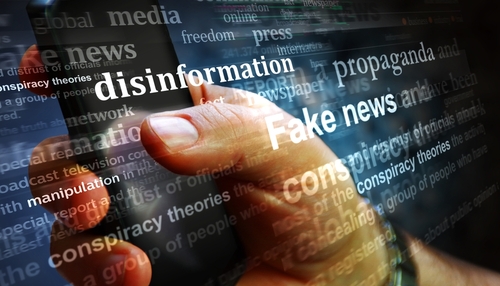US pressure on social media over misinformation likely unconstitutional, 5th Circuit says

Plaintiffs in Missouri v. Biden have taken issue with blocked or downgraded social media posts, including content on COVID-19 vaccines; pandemic lockdowns; election fraud; and controversy that arose involving data from a laptop that belonged to Hunter Biden, President Joe Biden’s son. Image from Shutterstock.
Updated: The U.S. government likely violated the First Amendment by pressuring social media companies to block COVID-19 misinformation and other content, a federal appeals court ruled Friday.
While social media platforms can restrict user speech on their own, their decisions may violate the First Amendment when they act as a result of government coercion or significant encouragement, said the appeals court in a Sept. 8 opinion.
But the 5th U.S. Circuit Court of Appeals at New Orleans said the efforts of Dr. Anthony Fauci, the former director of the National Institute of Allergy and Infectious Diseases, to promote the government’s views did not “run afoul of the First Amendment.”
Fauci promoted the government’s views and attempted to discredit opposing ones, but it does not appear that he communicated with the social media platforms, the decision said.
Publications with coverage include the Washington Post, the New York Times, Law360, the Volokh Conspiracy and CNN. How Appealing linked to news coverage and the opinion.
The lawsuit was filed by the states of Missouri and Louisiana and individual social media users. The plaintiffs took issue with blocked or downgraded posts, including content on COVID-19 vaccines; pandemic lockdowns; election fraud; and controversy that arose involving data from a laptop that belonged to Hunter Biden, President Joe Biden’s son.
The 5th Circuit panel decision narrowed a July 4 ruling by U.S. District Judge Terry A. Doughty of the Western District of Louisiana by tossing nine of 10 restrictions that he imposed on government officials, rewriting the 10th restriction and limiting the government institutions subject to a preliminary injunction, according to the Washington Post.
U.S. agencies affected are the White House, the surgeon general, the Centers for Disease Control and Prevention and the FBI. The revised injunction says they cannot “coerce or significantly encourage social media companies to remove, delete, suppress or reduce, including through altering their algorithms, posted social media content containing protected free speech.”
The White House and surgeon general, for example, “made inflammatory accusations, such as saying that the platforms were ‘poison[ing]’ the public and ‘killing people,’” the decision said.
Threats of reforms, such as regulatory changes, followed.
The CDC became “entangled” in social media decisions by regularly meeting with platforms and flagging content for removal. And the FBI regularly met with the platforms to flag misinformation and to urge that it be taken down.
Daphne Keller, a professor at Stanford Law School, told the Washington Post that the appellate decision appears to allow “a lot of normal communications, as long as they are not threatening or taking over control of platforms’ content decisions.”
“But it also says they can’t ‘significantly encourage’ platforms to remove lawful content, so the real question is what that means,” Keller told the Washington Post.
The authors of the per curiam panel opinion were Judges Edith Brown Clement, Don R. Willett and Jennifer Walker Elrod.
The case is Missouri v. Biden.
On Thursday, U.S. Supreme Court Justice Samuel Alito temporarily blocked the 5th Circuit’s narrowed injunction in the case, which had curbed some of the Biden administration’s communications with social media.
Alito’s administrative stay gives the full Supreme Court time to consider the government’s request to block the injunction. His stay remains in effect through Sept. 22.
Updated Sept. 15 at 11 a.m. to add information on U.S. Supreme Court Justice Samuel Alito’s administrative stay.



